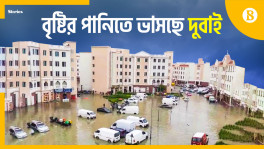Explainer: What is genocide?
What constitutes 'genocide'? And what persons or groups can be considered victims of it?

The Gambia has filed a case at the International Court of Justice (ICJ) accusing Myanmar of committing genocide against its Rohingya minority.
Myanmar's security forces unleashed a savage campaign against the long-persecuted Muslim-majority ethnic group in August 2017 in response to attacks by an armed group, reports Al Jazeera.
More than 700,000 Rohingya fled to neighbouring Bangladesh to escape the crackdown in Myanmar's Rakhine state.
The case filed by The Gambia at The Hague-based court alleges that Myanmar's actions in its campaign against the Rohingya "which include killing, causing serious bodily and mental harm, inflicting conditions that are calculated to bring about physical destruction, imposing measures to prevent births, and forcible transfers, are genocidal in character because they are intended to destroy the Rohingya group in whole or in part".
Myanmar, a Buddhist-majority country, denies allegations of genocide.
As in the case of crimes against humanity and war crimes, the international community has a duty to prosecute genocide - but what exactly is genocide and who does the term apply to?
Convention on the Prevention of Genocide
Polish scholar and activist Raphael Lemkin in the early 1940s coined the neologism genocide, combining "geno" from the Greek word for race or tribe with "-cide", derived from the Latin word for killing.
Genocide was first defined and criminalised in the 1948 Convention on the Prevention and Punishment of the Crime of Genocide.
According to the convention, genocide is defined as the killing or harming of the members of a national, ethnic, religious or racial group with the intent to destroy the group in whole or in part. Harm can include mental harm, imposing difficult conditions on the group, preventing births, or forcibly removing children to another group.
As such, the definition of genocide can only be applied to actions against one of these four groups.
Lemkin had envisioned a broader definition but according to Mark Drumbl, professor at Washington and Lee University: "Political pressures during the negotiations of the genocide convention, notably between the United States, United Kingdom and Soviet Union narrowed the protected groups only to those four groups."
As a result, some groups remain unprotected by the convention, including, for example, those who are killed and harmed with intent to destroy because of their gender, sexual identity or occupation.
According to Reed Brody, commissioner of the International Commission of Jurists who was instrumental in the prosecution of former Chadian President Hissene Habre among others, this does not mean that killing members of a group for their sexual orientation, for example, cannot be prosecuted as a crime against humanity. Yet, it cannot be prosecuted as genocide, which is also defined as an international crime in the Rome Statute of the International Criminal Court.
Proving intent
When it comes to the prosecution of genocide, the most difficult and crucial point is proving the accused party's intent to destroy - wholly or partially - the targeted group.
In the context of the Myanmar case, Brody said: "Direct evidence of genocidal intent rarely exists, but one can look at the derogatory official language towards the Rohingya, for example.
"The plans to change the demographic and ethnic composition of the Rakhine state, evidence of an organised plan of destruction and the extreme brutality of the atrocities against the Rohingya all point to the existence of direct intent."
Ilias Bantekas, professor of law at Hamad bin Khalifa University, agreed.
"What is important in proving genocide is the context and existence of a plan or a system," he said. "This requires the input from expert investigators and forensic experts, not to mention military experts."
Rarely prosecuted
It took 50 years for the first case to be tried under the 1948 convention.
The International Criminal Tribunal for Rwanda (ICTR) took the lead in the Akayesu case in which Jean-Paul Akayesu, mayor of the Taba commune during the 1994 violence in Rwanda that killed more than 800,000 people in about 100 days, was convicted for genocide in 1998.
Why is genocide so rarely prosecuted?
Drumbl says this can be attributed to an absence of political will on the part of governments.
For his part, Bantekas adds that "the vast amount of resources required to prove a system or a plan involving a system or a plan involving a multiplicity of actors makes genocide difficult to prosecute."


 Keep updated, follow The Business Standard's Google news channel
Keep updated, follow The Business Standard's Google news channel















